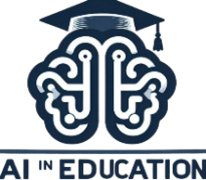
Prof. Speranza Ndege Bio
Prof. Speranza Ndege is an Associate Professor in the Department of Humanities, School of Education and Social Sciences, University of Embu. She has over 30 years’ experience in teaching, research and training. She is currently the Director, Open, Distance and e-Learning, University of Embu. She is a Fellow of Higher Education Academy (FHEA), St John York University, UK. She holds a B.Ed (Hons), and M.A., degrees both from University of Nairobi; a M.Sc.(CBIS), University of Sunderland (UK), a PhD from Ghent University, Belgium and a Post Graduate Diploma in e-Teaching, Agder University, Norway. Prof. Ndege is an e-Learning expert, and successfully implemented the first online programmes in Kenya under African Virtual University (AVU) with Curtin University and Royal Melbourne University, Australia in 2004. In 2005, she implemented the first e-Learning programmes in Kenya using the Blackboard LMS and Moodle LMS in 2007 respectively. Prof. Ndege served in the e-Learning Africa Advisory Board for five years, and was instrumental in the success of e-Learning Africa conferences. Prof. Ndege initiated the use of Moodle Open Source e-Learning Management Software at its infancy in 2007. Prof. Ndege has much experience in management of online learning/tutoring and Instructional Design. Prof. Ndege was appointed a member of the Planning Committee that led to the establishment of the first NEPAD e-School in Kenya in 2005-2007. As a Social Scientist/Researcher, Prof. Ndege has worked with communities in Kenya in areas such as: culture, gender and society, improving livelihood, environmental conservation, informal education and related areas. Additionally, she is well trained in Environmental Impact Assessment/Audit and for many years she consulted (on voluntary basis) for Royal Associates Consulting Engineers as an Environmentalist (Lead Expert). In 2009, Prof. Ndege was the Project Coordinator for six e-Learning projects funded by Partnership for Higher Education (PHEA). She has participated in other projects funded by Edulink and Daad among others. Prof. Ndege has expertise in e-Learning, content module development, training, online facilitation. Previously, she served as Director, Institute of Open, Distance & e-Learning (ODeL) at Kenyatta University for 10 years. She founded and managed KU-Television channel for three years. At University of Embu, Prof. Ndege has conducted almost 100 trainings in Content Development, pedagogy and e-Learning.
TOPIC: ARTIFICIAL INTELLIGENCE (AI) ASSEESSMENT TOOLS FOR SOCIAL SCIENCES
Abstract
Artificial Intelligence (AI) powered assessment tools for social sciences offer dynamic and effective solutions for evaluating complex cognitive and analytical skills. These tools can enhance the teaching and learning experience in social science classrooms by providing personalized insights, automating evaluation, and encouraging critical thinking. They can also identify logical reasoning, biases, and structure in students' answers. They can match grading criteria with specific social science frameworks. AI tools can create quick quizzes or open-ended tasks to gauge prior knowledge. AI can guide students in structuring their essays, ensuring they include key elements like thesis statements, evidence, and conclusions. Teachers can use real-time results to adapt lessons for areas where students struggle. Tools can present case studies and guide students through critical analysis by asking probing questions. Students receive AI-driven feedback on their interpretations, improving analytical skills. Tools can moderate online debates, ensuring all students participate and offering post-discussion analysis of argument strength and logic. Teachers receive dashboards summarizing individual and group performance, highlighting areas for intervention or curriculum adjustment. AI can measure students' understanding of societal structures, behavior patterns, and cultural dynamics through scenario-based questions or thematic essays. These assessment tools can also incorporate videos, images, and datasets for analysis as well as engage students with dynamic content, enhancing understanding of concepts like cultural diversity or societal changes.
The proposed presentation will focus on assessment tools that can make work easier for teachers in secondary schools. The same can be used by teachers in middle-level colleges and institutions of higher learning. It is envisioned that the presentation will be engaging especially during the practical hands-on session. The demonstration will focus on a AI powered tool that is deemed efficient and accurate in automation of question delivery, evaluation, and result compilation. The tool allows for assessments to be conducted at any time and as many times as the teacher may wish without agonizing about time or class size. The assessment tool that will be allows for quick creation of quizzes for students to attempt testing their understanding of a topic. These questions can be archived in a ‘question bank’ for reuse. Slow learners can benefit immensely from repeated assessments hence improving their class performance. These assessment tools are used mostly in online environments thus saving on paper. During the presentation, aspects of navigating the affordances, limitations, mitigation of AIED and use of the ontological imperative analytical framework will be addressed.

